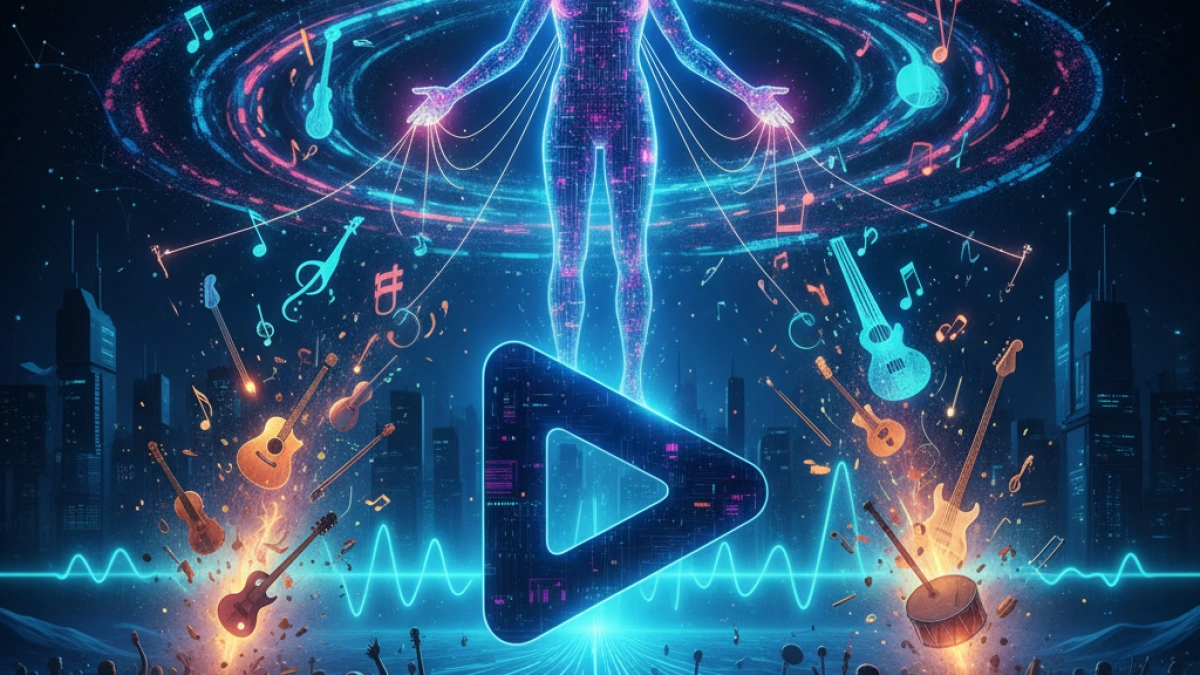The Invasion of Digital Artists on Spotify: A Threat to Music?


The arrival of artificial intelligence (AI) in music creation has generated a fascinating yet unsettling landscape in the music industry. In this context, a phenomenon is emerging that could radically transform the way music is produced and consumed: digital artists. Bands completely generated by algorithms are beginning to capture the public's attention on platforms like Spotify, raising important questions about the authenticity and value of music in the digital age.
The Rise of Digital Artists
The explosion of AI tools like Suno has enabled the creation of a new category of artists known as "digital artists." These groups, which operate without human musicians, are garnering an impressive amount of streams and followers on digital platforms. A clear example of this is The Velvet Sundown, which has accumulated 400,000 monthly listens and has released two albums in a short period of time—something that would be impossible for a human artist.
What alarms many the most is that most listeners are unaware that they are enjoying music produced by AI. The revelation that The Velvet Sundown is not real became apparent when their Instagram profile was created with AI-generated images, characterized by an evident stamp of artificiality. A quick inquiry revealed that there was no prior information about the band before its appearance just a month ago.
A Flood of Synthetic Songs
The case of The Velvet Sundown is not an isolated event. Reports suggest that currently, an estimated 10% of all songs uploaded to Spotify each day are produced through artificial intelligence. This trend allows anonymous individuals to create up to 20 songs at a time, and if they manage to capture the public's attention, they can generate significant income from these streams, posing a considerable challenge to the traditional music industry.
The Industry's Reaction: Can They Stem the Tide?
The music industry, known for its influence and power, has begun to react to this new wave of digital artists. Prominent figures like Elton John, Coldplay, and Dua Lipa, along with over 400 artists, have formally requested the UK government to implement regulations regarding the use of artificial intelligence in music creation. This sector has shown its mobilization capability in the past, as seen in the fight against Napster. However, so far it has not managed to stop Spotify, which radically transformed the model of music consumption. The question that arises now is whether the industry will be able to face this new technological shift.
The Final Question: Does It Really Matter Who Creates the Music?
This development leads us to reflect on the meaning of music today: if a song provides pleasure and emotion, does it really matter if it was produced by a human or by an AI? The question is even more complex: if a listener discovers that their favorite song was created by an algorithm, would that lose its value to them?
Perhaps the real issue lies not in artificial intelligence per se, but in the lack of transparency. Public perception may change if they knew in advance that a musical work was artificially generated, or if they felt deceived upon discovering it afterward.
The music industry faces a dilemma: in a world where the boundaries between the real and the digital are increasingly blurred, what role does human authorship occupy in musical art? The future confrontation between digital artists and traditional musicians will largely determine the course music takes in the era of artificial intelligence.
The discussion is open. What do you think about the impact of artificial intelligence on music? In a world where innovation and creativity can intertwine in unexpected ways, it is crucial to reflect on the value of authorship in artistic creation. Is music at a crossroads? For more analysis and reflections, feel free to keep reading on the blog.



















